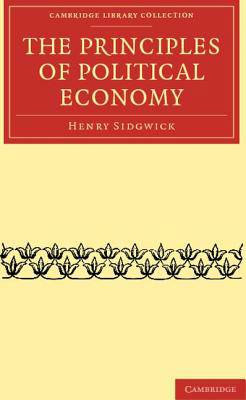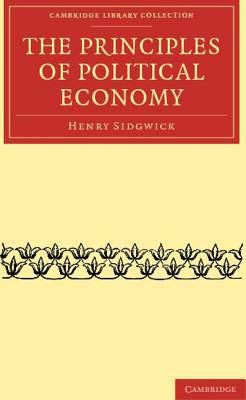
Bedankt voor het vertrouwen het afgelopen jaar! Om jou te bedanken bieden we GRATIS verzending (in België) aan op alles gedurende de hele maand januari.
- Afhalen na 1 uur in een winkel met voorraad
- In januari gratis thuislevering in België
- Ruim aanbod met 7 miljoen producten
Bedankt voor het vertrouwen het afgelopen jaar! Om jou te bedanken bieden we GRATIS verzending (in België) aan op alles gedurende de hele maand januari.
- Afhalen na 1 uur in een winkel met voorraad
- In januari gratis thuislevering in België
- Ruim aanbod met 7 miljoen producten
Zoeken
Omschrijving
Henry Sidgwick, (1838-1900), philosopher, classicist, lecturer and fellow of Trinity College, Cambridge, and supporter of women's university education, is well known for his Method of Ethics (1874), a significant and influential book on moral theory. First published in 1883, this work considers the role the state plays (and ought to play) in economic life, and whether economics should be considered an Art or a Science. Sidgwick applies his utilitarian views to economics, defending John Stuart Mill's 1848 treatise of the same name. The book calls for a return to traditional political economy by eliminating 'needless polemics'. Sidgwick also outlines the need to bridge the gap between his analytical or deductive method and the inductive method employed by Mill's critics, the new generation of economic philosophers including John Elliot Cairnes and William Stanley Jevons. The second edition, reissued here, was published in 1887.
Specificaties
Betrokkenen
- Auteur(s):
- Uitgeverij:
Inhoud
- Aantal bladzijden:
- 624
- Taal:
- Engels
- Reeks:
Eigenschappen
- Productcode (EAN):
- 9781108037013
- Verschijningsdatum:
- 22/12/2011
- Uitvoering:
- Paperback
- Formaat:
- Trade paperback (VS)
- Afmetingen:
- 140 mm x 216 mm
- Gewicht:
- 780 g

Alleen bij Standaard Boekhandel
+ 238 punten op je klantenkaart van Standaard Boekhandel
Beoordelingen
We publiceren alleen reviews die voldoen aan de voorwaarden voor reviews. Bekijk onze voorwaarden voor reviews.









